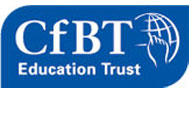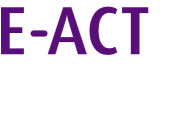 |
Welcome to our May 2014 Newsletter
|
|
Partnership working in small rural primary schools; the best of both worlds
|
 |
CfBT Education Trust published this research report at the beginning of April. CfBT commissioned Robert Hill and N.F.E.R. "to investigate the most effective ways for small rural primary schools to work together in order to improve provision and raise standards. The project sought to examine the circumstances and context of small rural schools in Lincolnshire and evaluate their different leadership models." The research looked at the different models of partnership of 99 smaller schools; the majority of which were in informal local collaborations. The report identifies 10 lessons for schools building effective partnerships.
It is reassuring that these are the key factors we have always stressed where schools are proposing to enter into collaborations, partnerships or federations. |

|
Ofsted's Report on recent inspections of academies
|
 |
When 16 of the 34 individual academies within E-ACT, a Multi-Academy Trust (MAT) were inspected, 11 were judged to be less than good whilst in 3 of the 4 academies, which had inspected twice, the inspection judgement had declined from satisfactory to inadequate. E-ACT was on the list of 14 academy chains, which have been told they would not be given permission to run any more schools because of concerns over standards. |

|
Are you ready? Good practice in school readiness - Ofsted April 2014
|
 |
The aim of the survey was to capture how the most successful Early Years providers ensure disadvantaged and vulnerable children are better prepared to start school. HM inspectors visited children's centres, childminders, pre-schools, primary and infant schools providing for pupils within the Early Years Foundation Stage. The providers were selected because they were successful in achieving good outcomes for children in deprived areas.
|
In the Key findings it stated:
"We found various views on the definition of school readiness and whether the term refers to readiness to start school on entry to Year 1 or at the start of entry into Reception."
Regarding ‘Children’s readiness for school’ it stated:
- The term “school readiness’ features in many reviews of education and statutory guidance. However the precise characteristics of school readiness and the age of the child to which it applies are interpreted variously by the providers we visited. There is no nationally agreed definition.
- The Allen Report encouraged the promotion of the best early intervention programmes to make sure that all children are able to be “school ready” at 5. The Field Report set out the importance of pre-school and look in particular at how home background determined a child’s readiness for school.
- The Tickell Report found it helpful to consider it from the perspective of its opposite- school ‘unreadiness’ – and described how most children begin Reception class at age four, and how for most parents and carers this is when school life begins.
Read more |

NASS supports schools across the border
|
 |
NASS works for all small schools. Though Wales and Scotland enjoy devolved responsibility for educational provision we are naturally interested to follow events and at times concerned by situations such as closure that reflect misunderstandings of the virtues of small schools and the flaws in stereotypical arguments, especially about costs.
Therefore we are delighted when schools we have advised, and when asked, helped, report to us news of their successful campaigns against closure or other rationalisations such as recently came from Gladestry and Llandinam primary schools in Powys. A few years ago we similarly rejoiced after helping Channelkirk primary school in Borders Authority in Scotland escape closure. The link here provides news of these schools subsequently.
Read more |

Small Schools Week - a reminder
|
| Are you thinking of taking part in our Small Schools Week June 23rd – 27th inclusive? We've received some imaginative and interesting proposals so far from groups of schools and individual schools, all involving their local communities in a variety of ways. If you want to apply for a grant, will you please send your proposals with likely expenses by Friday 23rd May. Our sub-committee managing the event is meeting on 27th May to consider all applications; you will be notified the following day of their decision. |
If you have any contributions for our newsletter please email us or write to us at:
National Association for Small Schools
'Quarrenden' - Upper Red Cross Road,
Goring-on-Thames, Oxfordshire RG8 9BD
Tel: 0845 2235029 |
|
|
|
|